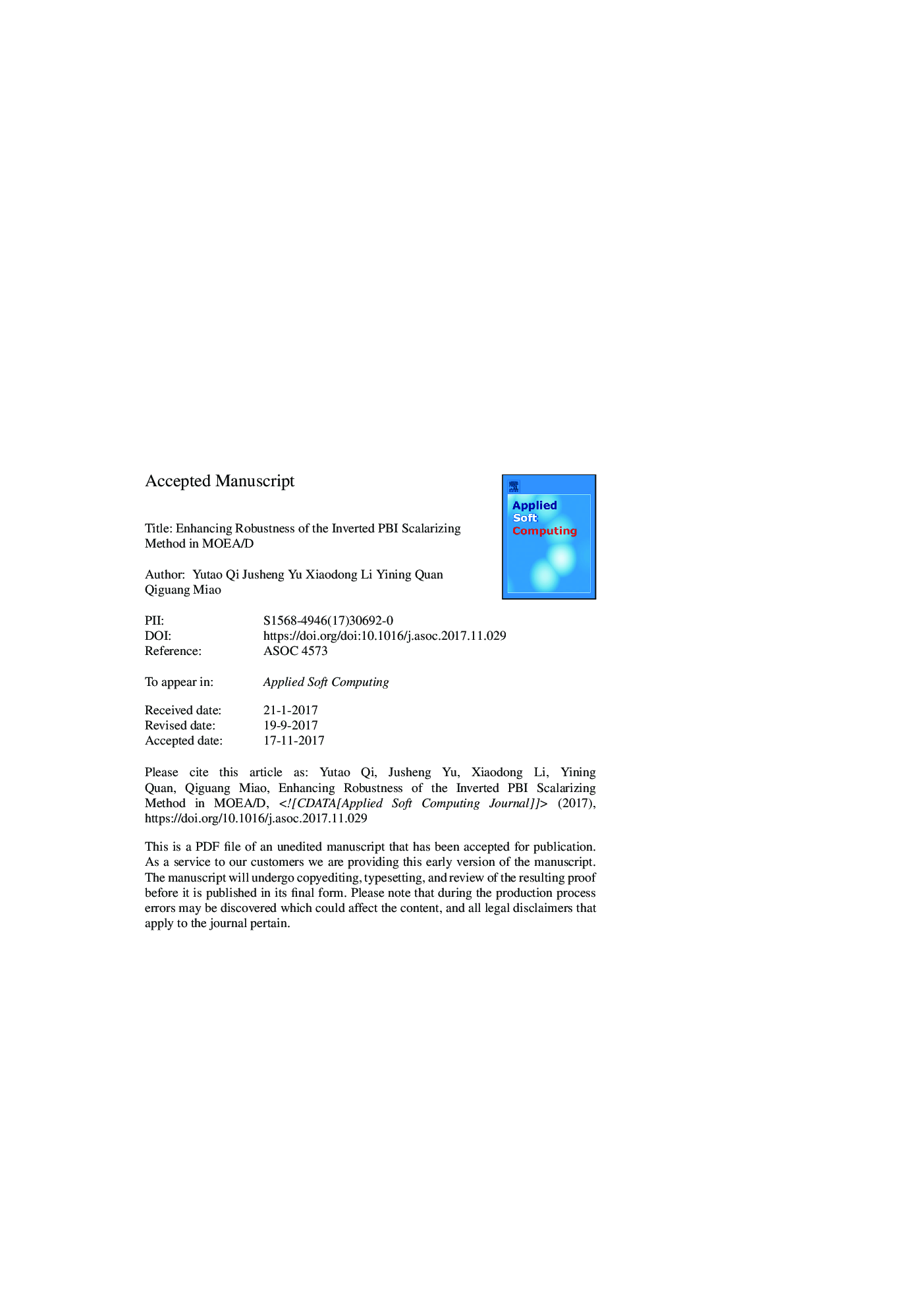| Article ID | Journal | Published Year | Pages | File Type |
|---|---|---|---|---|
| 11002696 | Applied Soft Computing | 2018 | 34 Pages |
Abstract
The scalarizing function design is an important issue influencing significantly the performance of a decomposition based multi-objective optimization algorithm (MOEA/D). Recently, an inverted penalty-based boundary intersection (IPBI) scalarizing function was proposed to improve the spread of solutions obtained by MOEA/D. Despite its effectiveness, MOEA/D with IPBI scalarizing function (MOEA/D-IPBI) still has several shortcomings: MOEA/D-IPBI often fails to obtain any solution within certain Pareto front (PF) regions. Furthermore, it may produce and retain unwanted dominated solutions outside the PF for some problems. In this work, we first analyze the reasons for the above two shortcomings of the IPBI scalarizing function, and then propose two improvement strategies, i.e., the adaptive reference point setting strategy and the adaptive subproblem replacement strategy, to overcome the two shortcomings of the IPBI scalarizing function respectively, giving rise to an enhanced MOEA/D with robust IPBI scalarizing method (R-IPBI). Experimental studies on WFG benchmark problems and the real-world reservoir flood control operation problems suggest that the two improvement strategies are very effective in overcoming the two shortcomings of the IPBI scalarizing function. As a result, the proposed R-IPBI algorithm is shown to be able to outperform the original MOEA/D-IPBI reliably.
Related Topics
Physical Sciences and Engineering
Computer Science
Computer Science Applications
Authors
Yutao Qi, Jusheng Yu, Xiaodong Li, Yining Quan, Qiguang Miao,
